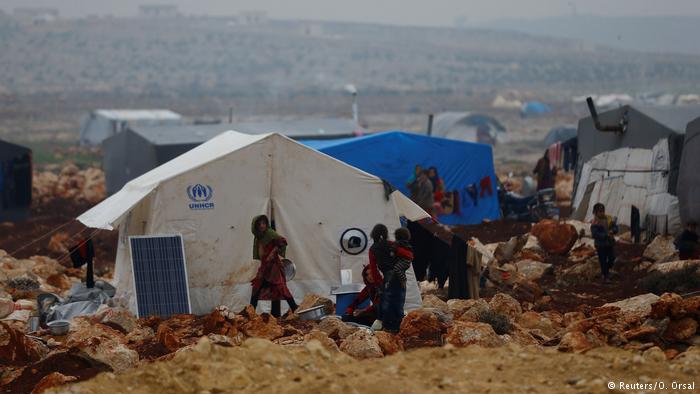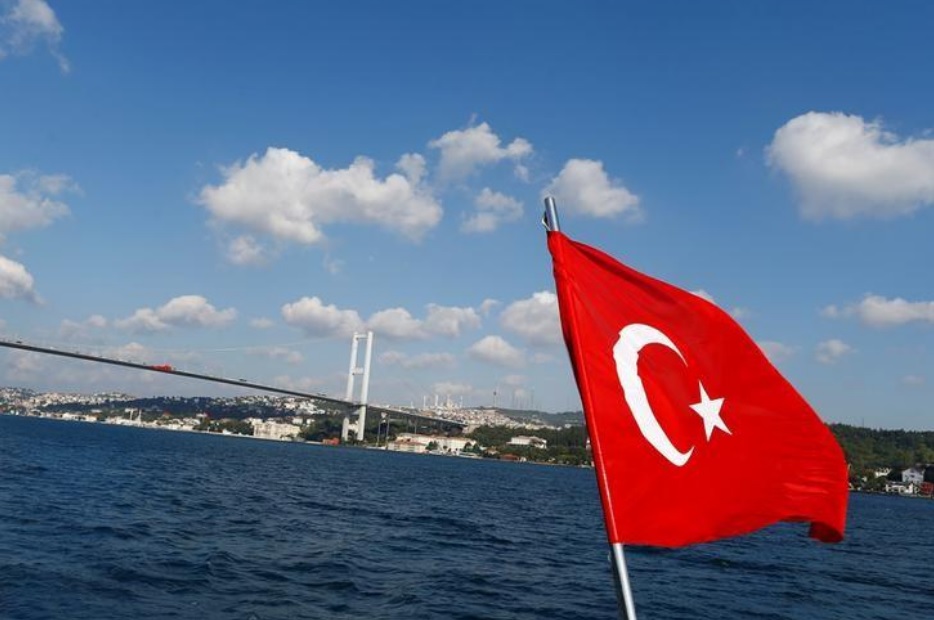
A Syrian government offensive against the Al-Qaeda stronghold of Idlib and Turkish attacks on Kurdish forces in Afrin are creating a humanitarian crisis and massive displacement. The UN is calling for a ceasefire.
Fighting raging across northwestern Syria threatens to heighten the dire humanitarian crisis and has already displaced tens of thousands of civilians, a top UN official said on Thursday.
Jan Egeland, the head of a UN task force on humanitarian aid in Syria, said the situation in Idlib province is “screaming for a ceasefire.”
“We cannot have conventional warfare in what is essentially a refugee camp,” he said of the province, where 1.2 million out of 2.4 million civilians are internally displaced people.
Backed by Russia and Iran, the Syria regime has pressed an offensive against Idlib from the south and east since late last year.
The province is one of the last rebel strongholds in Syria and is also host to many al-Qaida linked militants.
Egeland said since mid-December almost a quarter of a million people had been displaced into or from Idlib due to fighting.
Turkey, Iran and Russia have agreed on a so-called “de-escalation zone” in Idlib, essentially dividing the region up into spheres of influence.
Since October, the Turkish military has set up military observation posts in the northern part of Idlib, with reports in recent days of Turkish military movements in the area.
The Turkish military and its rebel allies on January 20 launched an offensive against the Kurdish-held enclave of Afrin in a bid to clear out “terrorists” from its border.
The offensive in Afrin has further raised tensions with NATO ally the United States, which backs the Kurdish YPG militia in control of Afrin.
The United States has no troops in Afrin, but supports the YPG under the banner of the Syrian Democratic Forces (SDF) fighting the “Islamic State” in northeast Syria.
Ankara considers the YPG a terrorist organization linked to the Kurdistan Workers’ Party (PKK) that has been behind a more than 30-year insurgency against the Turkish state.
Egeland said there were reports that 15,000 civilians have already been displaced in Afrin.
The Syrian government has called the Turkish military incursion a “blatant aggression,” raising the prospect Damascus and Ankara could enter into direct clashes in Idlib or Afrin.
Turkey has set up refugee camps inside Syria to provide for displaced people in Idlib to keep them on the Syrian side of what is now largely a closed border.
Egeland said humanitarian deliveries haven’t reached besieged areas across Syria in two months due to both the Syrian government and various rebel factions.
He also noted that since late December there have been no medical evacuations from Eastern Ghouta, a rebel-held area near Damascus with some 400,000 people surrounded by pro-government forces.
Further to the east in Raqqa, Egeland said civilians were trying to return since the former “Islamic State” stronghold after it was recaptured by US-backed SDF in October.
However, he said that at least 50 civilians were being killed or wounded each week due to unexploded ordinance and booby traps.




